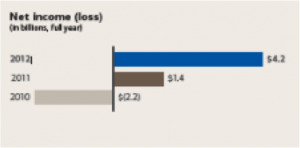The blogosphere and Twittersphere are buzzing over today’s NYT article on Warren Mosler and the proponents of Modern Money (or Monetary) Theory (MMT). This isn’t the first time MMT has been featured by a high-profile mainstream media outlet (see here, here, here) and, as usual, there are some editorial inaccuracies.
Warren has responded to the mistakes that affect him personally, and Randy Wray followed with some quick thoughts of his own. I spent close to 30 minutes on the phone with the journalist who wrote the latest NYT piece, so let me offer a further correction of (and for) the record. I was quoted as saying:
These ideas definitely aren’t disseminated through published academic journals. It’s all on the Internet.
Um, no. What I said is that we — the academics who helped develop the literature on MMT — started blogging as a way to get our ideas out more quickly than through traditional channels, where it is customary to wait two years or more before an article is finally published. The notion that MMT has no academic footprint is astonishingly inaccurate, for there are, quite literally, hundreds of publications including: peer-reviewed articles, books, chapters in edited volumes, encyclopedia entries, working papers, policy briefs, etc. in print. Suggesting otherwise supports the general tenor of the NYT piece — i.e. MMT is an Internet phenomenon that hasn’t been vetted through traditional peer-reviewed channels. That is patently false.
Has the Internet helped to generate a following? I’d say so.
And it seems to ruffle a lot of feathers.
Follow: twitter.com/deficitowl













